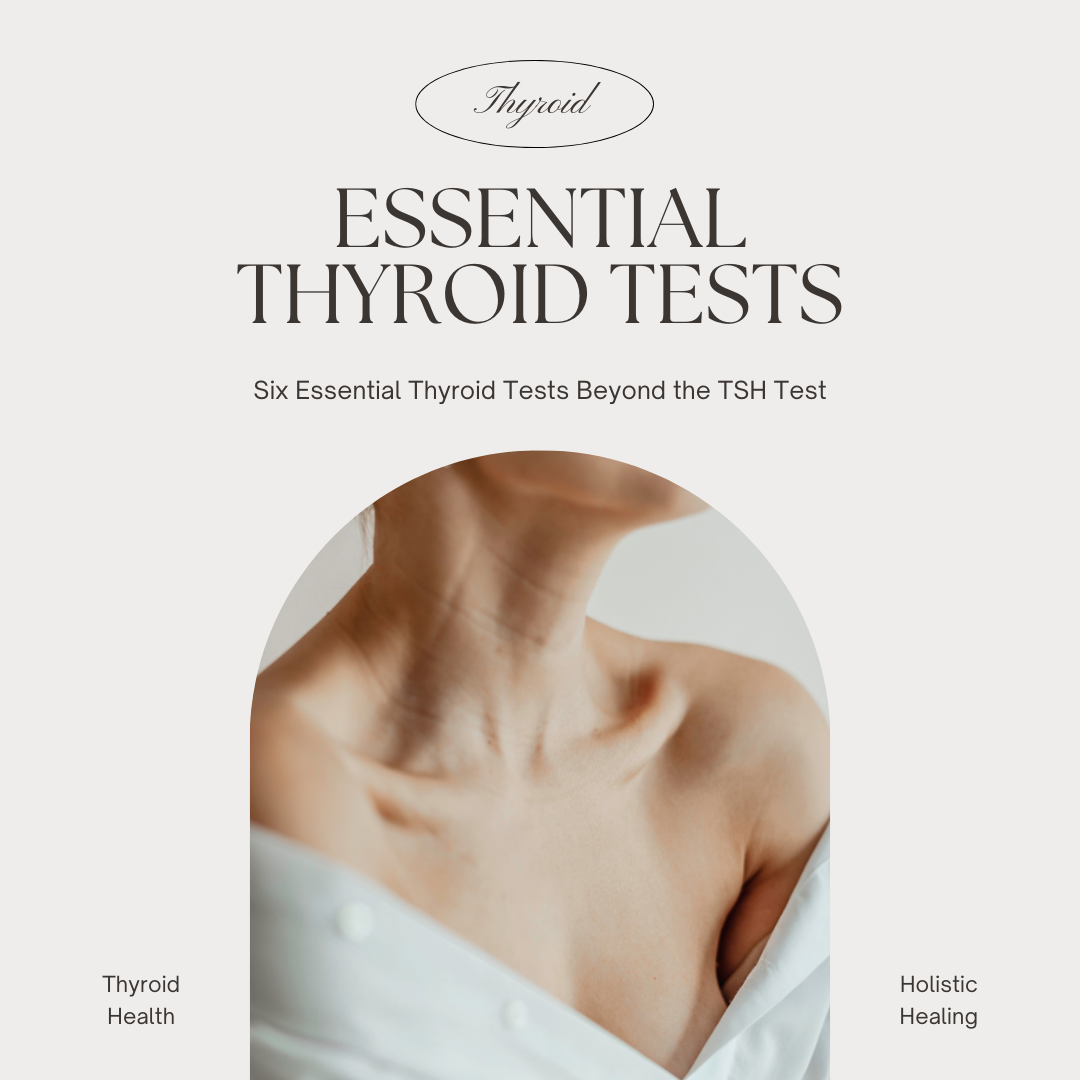Four Essential Thyroid Tests Beyond the TSH Test
Most conventional doctors still rely solely on the Thyroid-Stimulating Hormone (TSH) test to assess thyroid health, but this is often a limited approach. TSH alone may not provide a full understanding of thyroid function, potentially leaving thyroid issues undiagnosed. Patients can advocate for themselves by becoming familiar with additional tests, such as those that measure thyroid hormone levels and antibodies, to get a more complete picture of their thyroid health. This can help ensure that underlying problems are identified and addressed, especially when symptoms persist despite normal TSH results.
Here I have outlined the essential thyroid tests that can provide a full picture of thyroid function, beyond the commonly ordered TSH test. These tests should be easily obtainable from a doctor or lab, though interpreting the results can require expertise. A functional medicine doctor or open-minded endocrinologist may be necessary to obtain a complete thyroid panel, especially when symptoms suggest hypothyroidism.
When a patient shows signs of hypothyroidism, I prefer to run a comprehensive panel immediately, but may start with just TSH, FT3, and FT4 if other conditions could explain the symptoms. If the initial results are borderline, I always follow up with more tests, as early signs of thyroid issues can sometimes be missed.
Key Tests:
Thyroid-Stimulating Hormone (TSH): TSH is produced by the pituitary gland to stimulate the thyroid to produce T3 and T4. While the normal range is often set between 4 and 5 mU/L, some experts argue it should be lowered to 2.5-3 mU/L. Functional medicine practitioners often prefer a range of 1.5-2 mU/L for optimal health, as higher levels can indicate sluggish thyroid function. However, normal TSH does not always mean the thyroid is functioning well, as conversion issues or hormone resistance may exist.
Thyroid Hormones (T3 and T4): T4 is produced by the thyroid and is converted to the active form, T3, which regulates metabolism. Free T3 (FT3) and Free T4 (FT4) are measured to assess thyroid activity. High TSH with low FT4 and FT3 indicates hypothyroidism, while normal TSH with low FT3 can point to conversion problems. High FT3 with normal FT4 and TSH may suggest cellular resistance to T3, leading to hypothyroid symptoms.
Thyroid Antibodies: Thyroid antibody tests (TPOAb and TgAb) are used to diagnose autoimmune thyroid disease. These tests can sometimes be negative initially, so repeating them every six months may help track improvement when addressing underlying causes.
Reverse T3 (rT3): rT3 is an inactive form of thyroid hormone that the body produces to conserve energy, often in response to illness, stress, or poor nutrition. If TSH and FT4 are normal but FT3 is low, rT3 may be elevated. This test can help explain hypothyroid symptoms when standard thyroid tests appear normal, though its usefulness is debated among conventional doctors. The author finds it valuable for certain cases.
Many doctors use a limited interpretation of thyroid lab results, diagnosing hypothyroidism only when TSH levels exceed 4.5 to 5.0 mU/L. However, newer research suggests lowering the upper limit to 2.5 mU/L, as most healthy individuals fall within 0.4 to 2.5 mU/L. Some debate exists over whether to treat individuals with TSH levels between 5 and 10 mU/L, even if they show symptoms.
During pregnancy, treatment is recommended if TSH exceeds 2.5 in the first trimester or 3.0 in the second and third trimesters.
If TSH is normal but free T3 (FT3) is low, FT3 supplementation may be considered, and factors affecting T4-to-T3 conversion are explored. Reverse T3 (rT3) is checked because stress, infection, and poor nutrition can cause the body to reduce thyroid function as a protective mechanism.
In cases where TSH, FT3, and FT4 are normal but symptoms persist, thyroid hormone resistance is considered. This can occur due to high cortisol or inflammation, sometimes linked to an MTHFR genetic mutation, which can be managed with methylfolate supplementation.
You might also like; Understanding Hypothyroidism: A Holistic Approach
GET IN TOUCH
Ready to take the next step toward holistic healing? Now accepting new patients at my Santa Cruz-based Acupuncture and Herbal Medicine Clinic, as well as offering Telehealth consultations for patients across California and the United States. Let’s create a personalized path to wellness together! Contact us today to schedule your appointment.


